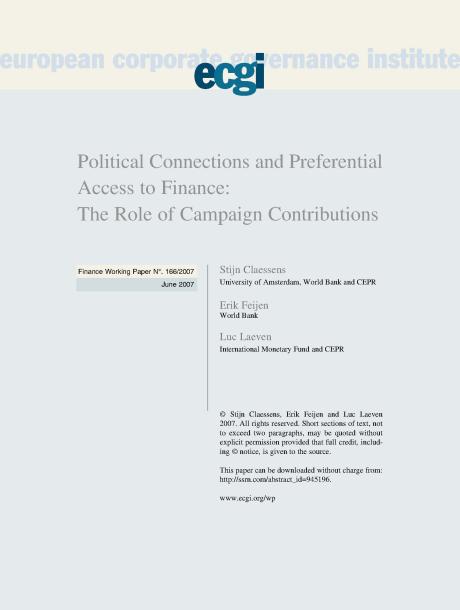
Political Connections and Preferential Access to Finance: The Role of Campaign Contributions
Abstract
Using novel indicators of political connections constructed from campaign contribution data, we show that Brazilian firms that provided contributions to (elected) federal deputies experienced higher stock returns around the 1998 and 2002 elections. This suggests contributions help shape policy on a firm-specific rather than ideological basis. Using a firm fixed effects framework to mitigate the risk that unobserved firm characteristics distort the results, we find that contributing firms substantially increased their bank leverage relative to a control group after each election, indicating that access to bank finance is an important channel through which political connections operate. We estimate the economic costs of these political connections over the two election cycles to be at least 0.2% of GDP per annum.








